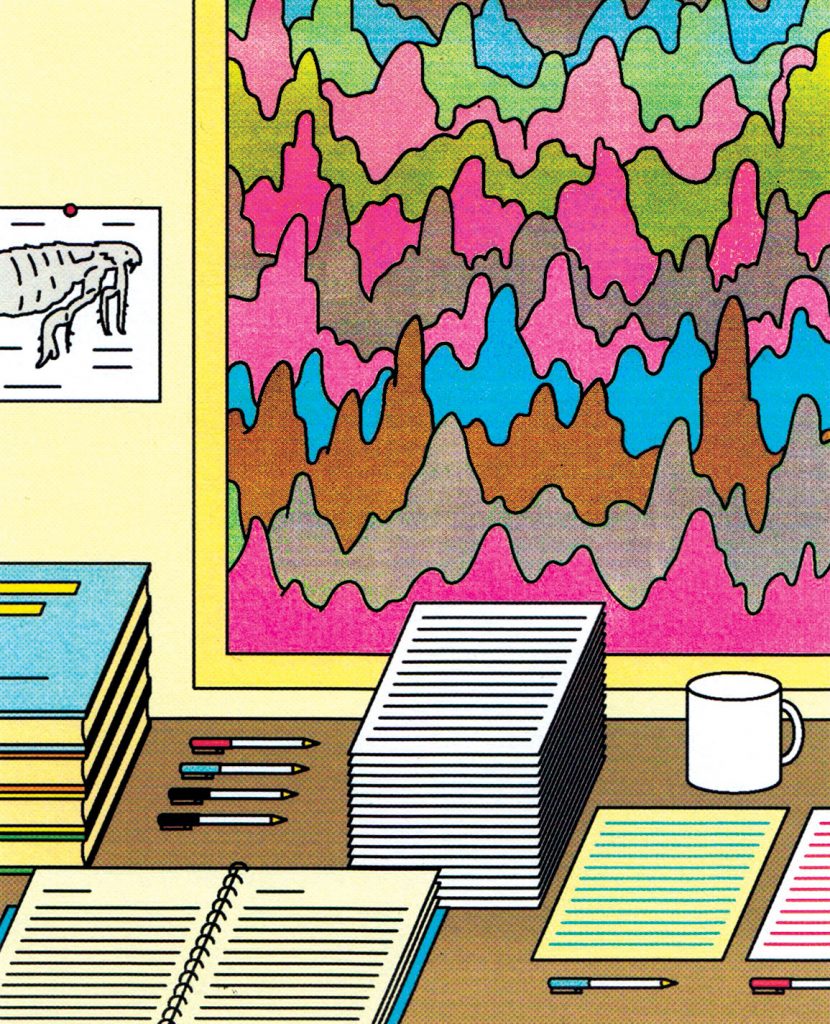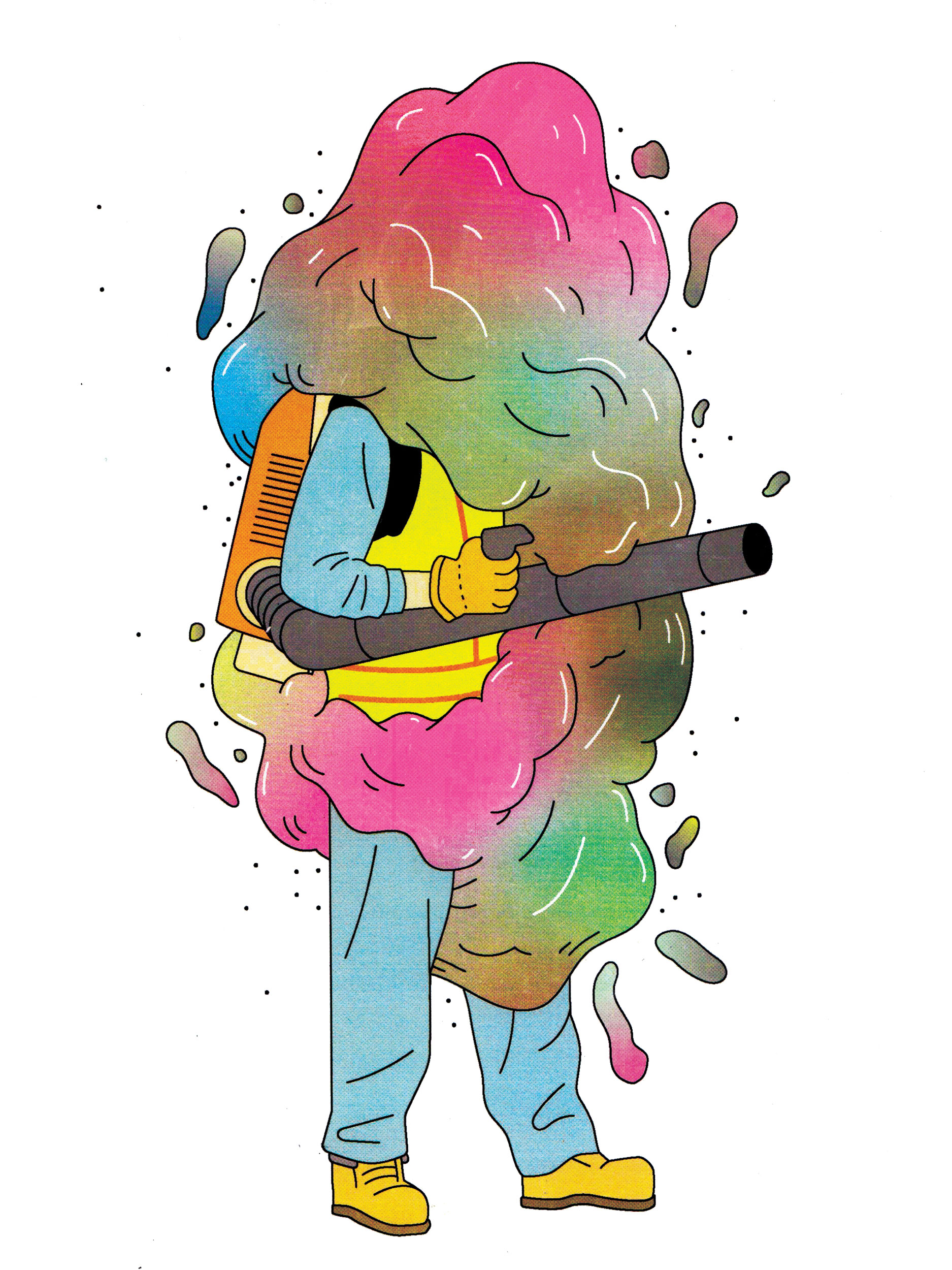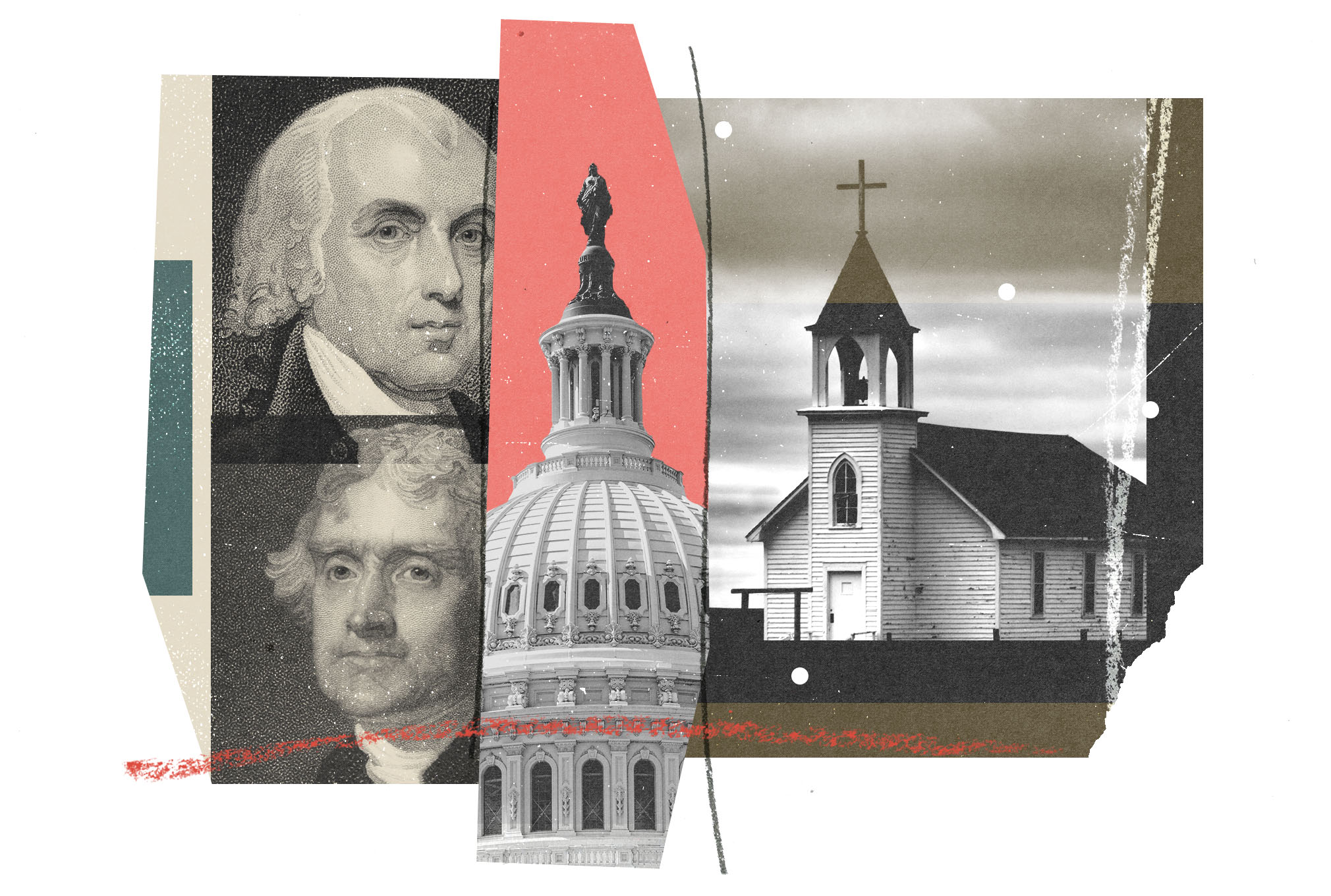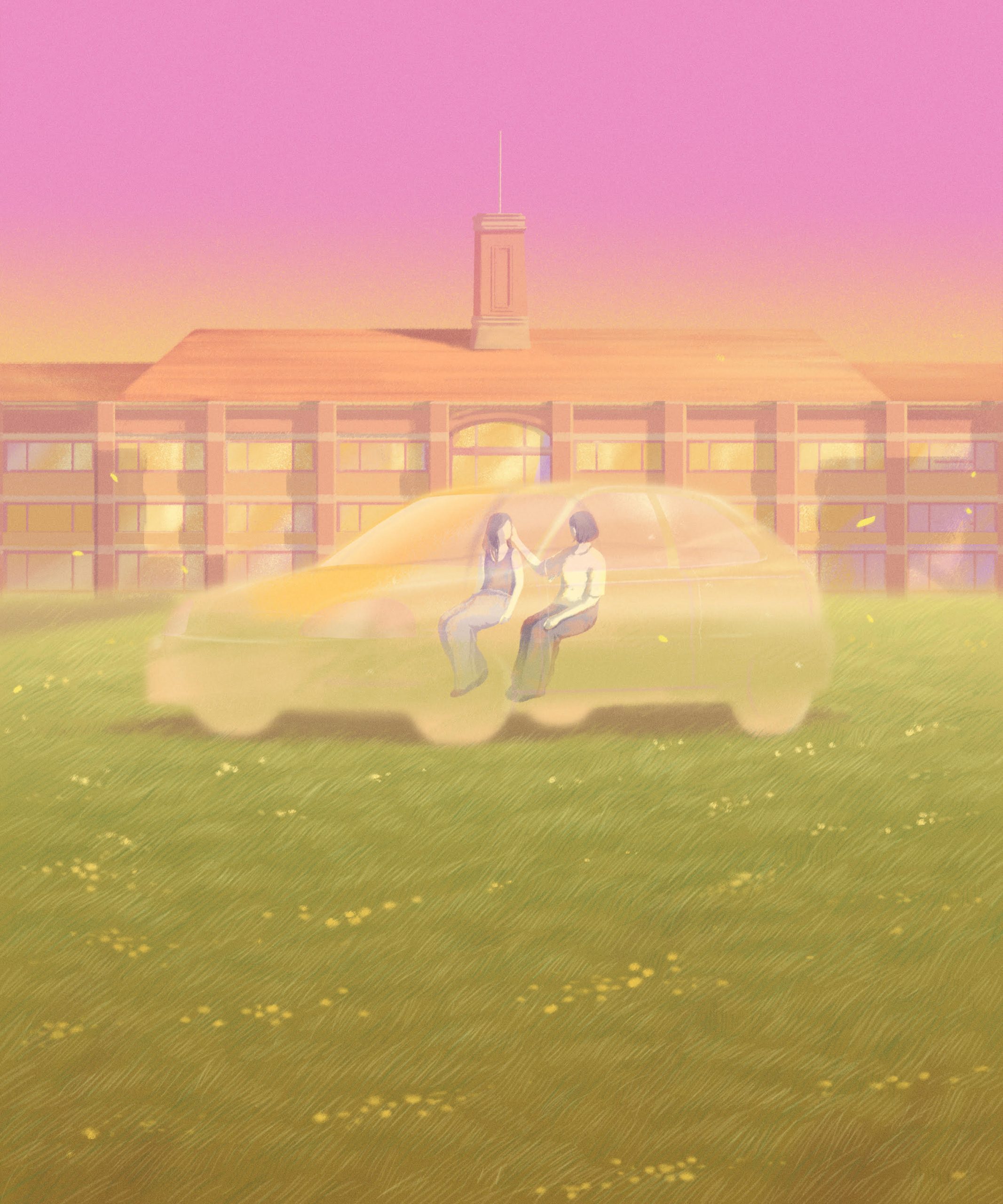The town in Oregon was named Pierce at first. But 150 years ago, Pierce was pronounced purse and then some heard peace in purse. By the time it was incorporated there was one group who thought Peace for the name of a town was probably some corruption of an Indian word that was in turn misheard as a kind of place name like “wet meadow,” and when it was finally settled, the name of the town officially became Beneton, a word completely unassociated with any of the above. “Completely unprofessional,” one finger-wagging council member declared. And for a space of nearly two years, the unofficial motto of the town became “Completely Unprofessional.”
All this is a concatenation of tales and slivers of hearsay that has as much claim on truth as any group memory. The Peace contingency comforted itself with the Bene part—the home of good. Close enough.
It was the third leaf blower in two hours, the third neighbor’s need to clean off sidewalks, blow leaves out from behind the shrubs, elevate into the air all the spores and dried animal feces and pathogens and micro-fine lead paint dust and bacteria. John thought: Nothing in nature produces two-hundred-and-forty-mile-an-hour wind right at the surface of the earth. The leaf blower does and STIHL even has a tag around the blower advertising that. Baden-Wurttemberg is the home of STIHL, thought John. I’m thinking of changing my name to St. Jude to engage more and more lost causes. The trigger finger yanks, and the wind increases, and the finger having yanked moves on. Zoom and zoom and zoom for all of us to breathe.
He had—only once, though—while out walking stopped the blower guy from the yard service, tapped him on the shoulder because the guy had on ear protection, and when he raised one earmuff, John had asked if he knew he was at risk of various lung conditions, and then rattled them all off for the stunned young man. At the end, the worker replaced his ear protection and re-wailed his machine up the walkway in the opposite direction. I am Cassandra, thought John. I too am wailing into the ears of an uncaring world. My wailing has joined the general woe.
He thought of himself as young, but he felt this island in the middle of his thirties was well downstream of youth. Herbicide residue, pesticide leavings, particulate matter from the searingly inconsiderate Dow and Monsanto abroad in the air. Weren’t they now the same company? Didn’t the German company Bayer AG buy them both? More and more Germans. Weren’t two world wars enough? Maybe Dow was somebody else.
John Wiltshire had arrived at his island by being circumspect. And rational. And careful. His hair never behaved, but he did. It was easier to behave—easier on everyone. His older brother had made a career from a young age of calling attention to himself by doing exactly the opposite of behaving: shoplifting things he didn’t need; pilferage on his job at the trucking company; petty larceny in the name, John supposed, of getting caught eventually and receiving all that attention. Such a waste, they would say. A good boy from a fine family, and he seems to do nothing but wrong. Bad companions some said. But John knew that his brother lusted for notice, any notice. And got it. Such a shame, they continued to say.
For John, the Wiltshire name was redeemable only by being reasonable in an unreasonable world. Not Mr. Spock. Not the obverse Hal, the mad computer of 2001: A Space Odyssey. And not the most recent but the most potent attack on reason, the pharmacological assault on the earth. No aliens seeking asylum for their children, water for their desert plants. Alas, thought John—often and thoroughly. Alas, indeed. Even the sound of alas seemed to encircle the globe, or at least his part of it. And back came the echo from the crevasses and interstices of regret. Alassss, indeed.
John had tried what the barber had called “product” on his hair, but the result was sheen, not control. Each thick dark brown hair seemed to have its own agenda and operated independently of all the other hairs. Oh, there were groupings like accidental associations—strangers walking on a crowded street forming and unforming pods like terrestrial whales. John declared finally a truce of exasperation and allowed his hair to be its unspeakable self. That was the term one of the cleverest of his succession of girlfriends had invented. She ran her hand through his hair, and then she declared them to be anarchist hairs, each being its own unspeakable self.

The world became a better place, if only where the world touched John. But there on that island in his mid-thirties something that began as an itch became a creeping sensation, then an aggravating, high-pitched noise, far away but growing closer and closer.
John thought that if he could just gather around him a sensible set of provisions then, in time, maybe a lifetime, he could expand that circle of sense out into the world. And, at the end, there was the chance that the expanded circle would prove to be the beginning of—of something to hold off the chaos of . . . of . . . Well, anyway, something of value. John’s job was part of his plan.
He had taken his history degree from an inexpensive but adequate state university and launched himself into the publishing world. First as a proofreader for a small press, then as a trainee at what was essentially a phonebook publishing company. Then, as the phonebook world shrank, at a small press that specialized in government fisheries contracts, though he made his first mark as the lead editor on a compendium work dedicated to Siphonaptera—fleas. Only a few scientists suspected how many kinds of fleas there were, and no one had compiled such a thorough work before. John did the gathering of the science, and then he even began the book’s index himself before handing over that job to a professional indexer. John had loved the indexing work but realized very quickly that there was a set of skills implied that he had only begun to appreciate. Indexing was like organizing his hair. And John realized quickly that when his hair was plastered to his head, his high cheekbones and the cleft on the end of his nose both disappeared because the plastered hair, product agleam, overwhelmed all the surrounding features. Only with his hair unindexed, he thought, was there any completeness to his face.
The flea book led to more, and more led to better, as it should in a reasonable world. John prospered; his circle of sensibility widened. The world became a better place, if only where the world touched John. But there on that island in his mid-thirties something that began as an itch became a creeping sensation, then an aggravating, high-pitched noise, far away but growing closer and closer. And finally, it was right there behind John’s eyes like a headache but made of bright lights and sour smells. There was no reasonable solution, it seemed. He had read that children in the 1950s in Midwestern towns had ridden their bicycles behind trucks that were fogging DDT against mosquitos. Immediately he thought, I bet they had no fleas and very few outbreaks of head lice. And then a picture rose up, and John saw what saints must see, what dervishes whirled to achieve, what blows to the head sometimes produce: clarity. He saw those Midwestern families luxuriating in their mosquito-free backyards with tall drinks and amiable chatter while the fogger fogged and their children dipped themselves in DDT. He saw all at once the consequences and the insouciance and the chemical company salesmen and the year-end bonus checks and the self-satisfied burghers congratulating themselves on an improved existence all while the chemical concoction did its concocting for the children’s future: the chemo IVs, the lumps and tumors and raging wild cell growth. All at the same time—a saint’s vision and certainty. Who would stop the next iteration? DDT became tobacco became polychlorinated biphenyls. PCBs became glyphosates became the rattling snout of the leaf blower’s toxic storm.
When exactly does a reasonable man become unreasonable? John had given the world the still unsurpassed compendium of knowledge on fleas. Now he was finding a cacophony, a mounting cacophony crying out for him to be the next St. Joan, the next cry in the wilderness of self-satisfaction and backyard burghers without a clue. And unlike Joan of Arc, John did ask the essential question: Why me? Why not somebody else? Let my little lamp of reason shine as far as it is able to break up the night’s darkness. Must I burn and explode myself to shatter the night? And the answer more and more often came to him, yes. And again, yes. And yes yes yes yes. There were biblical robes to rend, King Ahabs to confront, flesh to flay. He must be unreasonable, John concluded, in the pursuit of reason.
He felt the cage of reason, too. Once you’re in, it’s reasonable to stay there. The hell of it is that it is clearly not locked, he thought. It would be easy to stay in, but there it is—the way out. And nothing stands in the way of a person wandering out for a while, having a look around. Just for a while, of course. John laughed to himself. That’s what they all say. Sure. They say that standing in the docks of Old Bailey. Hanging their heads at sentencing in the Ninth Federal District Court. Holed up in a farmhouse in Vermont while the police cars circle and wail in the barn yard.
John had read how important visions were to the world: Piers Plowman, Jean-Jacques Rousseau, Joan of Arc—and then there were the jailhouse versions of visions: Martin Luther King, John Bunyan, and Thoreau, of course. Visions came and visions went, John thought. Why me? Why should I step out of the cage and mess everything up?
Out the window and down the street came the answer: a leaf blower fired up and assaulted the air, then spewed the air, then blew open the door of the cage. Start small, thought John. This will be a marathon, not a sprint. But then, reasonably, he thought that this business might not be an either/or situation but instead much messier, like life. Start with a sprint, then go slower for a marathon and harbor your strength for a while. Sprint, harbor, walk a little, maybe even sit on a bench for a while. The vision roiled on. The gift of reason was only a gift if it gave results you wanted. The French eighteenth-century Enlightenment thinkers were, to a man, thinkers of reason and its consequences, but in their lives they were various forms of mess and madness and warring parts. The social contract was a desirable end for reasonable humans. The way there was fraught with personal ogres and dragons.
John recalled reading in Ovid’s Metamorphoses that one of the three Furies, Tisiphone, to punish a particular murderer, flailed her snake hair at him and the snakes didn’t bite him but slithered over his body breathing out their venomous breath and driving him mad with depression and loss of the faculties of reason. Ah, but that was only the beginning of her punishment. She whirled her whip of flames in the air and so violent were the flames that even the flying pieces of flame caught fire again. Whatever the hell kind of logic that was, thought John, it was approximately right for the leaf blower: madness, then conflagration so fierce that the fire caught fire. His vision continued by the act of ruminating. The leaf blower down the street gunned itself and violated the air with its incivility.
••
Michael Strelow is a professor emeritus of English at Willamette, where he taught from 1980 through 2015. This story is Chapter One of his novel-in-progress John and Julie and Robert, which follows the lives of three childhood friends as they engage the world, each in a different way. Strelow’s debut novel, The Greening of Ben Brown (Hawthorne Books), was a finalist for the 2005 Ken Kesey Award for Fiction. Strelow is the author of several other books of fiction and nonfiction, and his poetry, short stories, and creative nonfiction have appeared widely.




